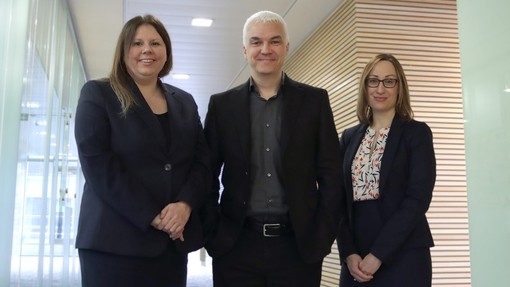‘A Disagreeable Truth’: When a parent has ‘nothing to offer’

‘A Disagreeable Truth’: When a parent has ‘nothing to offer’
No contact, no parental responsibility?
In the case of many separating parents, child arrangements will be agreed between them, to determine with whom the child shall live, and how much time they should spend with the other parent. This has the advantage of being a bespoke solution, which will better meet the needs of their own children, and their own lives. For some children, care being shared equally between their parents will give them the best of both worlds, where others will thrive on having a more stable main home in the week but will spend regular weekends and holidays with the other parent. Every family is unique, and the arrangements need to work for them, and to adapt as the child grows and matures.
Some will need the assistance of a solicitor, mediator, or the court in determining those arrangements, however parents will need to be aware of the presumption in favour of a child spending time with both parents, enshrined into law, s1(2A) Children Act 1989:
A court, in the circumstances mentioned in subsection (4)(a) or (7), is as respects each parent within subsection (6)(a) to presume, unless the contrary is shown, that involvement of that parent in the life of the child concerned will further the child’s welfare.
(2B) In subsection (2A) “involvement” means involvement of some kind, either direct or indirect, but not any particular division of a child’s time.
That presumption is clearly subject to a caveat to protect the child from harm, or the risk of harm. A great number of cases which do come before the family court will involve one parent making allegations against the other, which could cover allegations of physical, emotional, sexual, financial abuse – or a combination of these. Statistics released last year found that in 2019/2020 the Family Court received over 50,000 private law applications. Forty percent of these involved allegations of domestic abuse.
This could be abuse which is allegedly directed at either the parent, or the child. In either case, the guidance found at PD12J of the Family Procedure Rules 1991 states unequivocally that a child who sees, hears or experiences the effects of abuse towards a person in their home is to be considered a victim of domestic abuse.
In such cases, the court will need to grapple with questions concerning the safety of the child and the parent making the allegations. The court will need to consider whether the allegations require a separate fact-finding hearing, to consider whether the child ought to spend time with their parent, and if so whether it should be supervised or unsupervised, direct or indirect (such as face time calls, letters or cards). These decisions all require sensitive handling, and a balancing of any perceived or determined risk of harm as against the legal presumption set out above.
This is the legal backdrop against which Mr Justice Hayden recently stated, in surprisingly strong terms: ‘There is sometimes, though very rarely, a parent who has nothing to offer a child and with whom the child is better off without. This is such a case’.
The case was reported under the following citation: [2023] EWFC 5, 2023 WL 00191190, and has always been reported in entirely anonymous terms, a previous judgment being handed down under the title F-v- M [2021].
In brief terms, the case had a long and ‘extremely difficult procedural history’. Serious allegations had been made of coercive and controlling behaviour by the father, and the matter was listed for a fact-finding hearing (adjourned a number of times before successfully taking place). Mr Justice Hayden made findings, in his words, ‘at the highest end of the index of gravity, within the sphere of coercive and controlling behaviour’. Only eight weeks after that judgment, which was not appealed, the father applied inter alia for a Child Arrangements Order to spend time with the children, the youngest of whom he had not met.
The mother cross-applied for permission to disclose the earlier judgment and case papers to the police (such permission was not in fact required) as well as an application to remove the father’s parental responsibility for the children.
Parental responsibility (PR) is defined at s3 Children Act 1989, as ‘all the rights, duties, powers, responsibilities and authority which by law a parent of a child has in relation to the child and his property.’ In practice, this means that a parent with parental responsibility, even one who does not spend time with their child, cannot be excluded from key decisions relating to the child’s education, religious upbringing, medical treatment etc.
Cafcass were duly instructed to prepare a report setting out recommendations. The officer concluded that she could not recommend direct contact as it would not be possible to safeguard the children from the father’s abusive behaviours until he had undertaken therapeutic work. However, she recommended indirect contact, limited to one letter per year to be stored in a safe place ‘until such time that [the children] are able to read his letters’. The parties went on to agree a consent order to adjourn the final hearing, as they hoped to agree and narrow down the issues. The judge, having concerns, refused this application, and also invited the parties to consider whether an application under s91(14) Children Act 1989 was required.
S91(14) Children Act enables the court to impose an order by which a parent cannot make a future application to the court for an order concerning their child without first obtaining permission (‘leave’) from the court. There is usually a high hurdle for obtaining such an order, however, a new section 91A has recently been inserted into the statute to provide the court with further guidance as to when such an order, previously deemed to be draconian, might be required. The court can make such an order of its own motion, even if neither of the parents has applied for the same. The central focus of the provision is to protect a parent from inappropriate applications (often repeated, and made without foundation or merit), described in this judgment as ‘corrosive, demoralising and controlling applications which have an insidious impact on their general welfare and wellbeing and can cause real emotional harm’ to both the child and the parent with whom they live.
In fact, by the morning of the hearing, the parties had agreed various provisions:
- There be indirect (letter) contact once per year, subject to various conditions, and otherwise, no contact between the father and children
- There be a prohibited steps order, preventing the father from exercising his parental responsibility without leave of the court (see below)
- There be a s91(14) bar preventing the father from making any further application without leave of the court until 16.11.2035
- An existing non-molestation order be extended
- The mother would have permission to disclose any document from the proceedings to various named agencies
The court was unable to terminate the father’s PR as originally sought, due to troubling discrepancy in the law. Whether or not PR can be terminated will depend on how it is acquired, leading to unmarried fathers being treated differently to married fathers. As the parties were married when the children were born, this father acquired PR automatically and there is no provision in law for it to be terminated. Only the PR of a father acquired by being registered on the child’s birth certificate, by a PR agreement or by a court order granting PR, can be extinguished by the court. Therefore, the most the court could do (as above at paragraph 2) was to grant an order removing the ability of the father to exercise his PR in any way.
As stated by Mr Justice Hayden at paragraph 7 of the judgment:
‘Against this backdrop, it is uncomfortable to realise, in 2022, that M may not make an application to divest F of his parental responsibility entirely due to the fact that she was married to him when the children were born. Moreover, by the time of the marriage, as I found in the judgment, M’s autonomy had already been significantly corroded in consequence of her treatment by F. Her parents believed and continue to believe that the marriage was driven by F’s desire to obtain leave to remain in the United Kingdom. However, whilst I find this anomaly of legal status to be profoundly uncomfortable, I do recognise that the contemplated protection for the applicant parent and children is to be found in the regime of Prohibited Steps Orders and Specific Issue Orders which the Children Act affords. Thus, whilst the legal status of a married father remains intact, it can be stripped of any potency to reach into the lives of the mother and children. His ability adversely to affect the welfare of either may be effectively prevented.’
The judge however remained dissatisfied by the recommendation of indirect contact, and the parties’ agreement to the same. The court asked itself why, if this were a case where the Cafcass officer would have been recommending termination of the father’s PR if it were possible, would she recommend indirect contact?
The court found, with reference to the father’s earlier lies during the parties’ relationship, that he was and is a fantasist. He further stated that the father ‘has not revealed the slightest insight into his own behaviour nor have I seen him exhibit even a scintilla of empathy for those whose lives he has grievously damaged.’ He also felt that the cards sent thus far were inappropriate for the children.
The judge was therefore clear that he could not identify any benefit to the children of this indirect contact, but felt it was easy to see how the ongoing letters could be actively harmful to the mother and children. At the conclusion of the hearing, the father in fact confirmed that he would not oppose an order for ‘no indirect contact’.
The judge concludes his judgment with the following:
‘My comments in respect of this father are not ones that any judge makes lightly. Judges do well to avoid emotive terms, but equally, where a clear finding requires to be made, it cannot be concealed in abstruse and cryptic language, which might only serve to soften or occlude the message.’
It will be an extremely rare case where the court considers the risk of harm posed by one parent is such that they should have no contact, direct or otherwise, that they ought to have their PR terminated or limited, and in short, that they have ‘nothing to offer a child’. However, above all, the Children Act enshrines the principle that the welfare of the child is paramount.
The message in this case is clear: a parent does not have the right to exercise a relationship with their child if such relationship would not keep that child safe from harm.
If you require any more information or assistance, please contact Ellie or Joanne from our family team.





